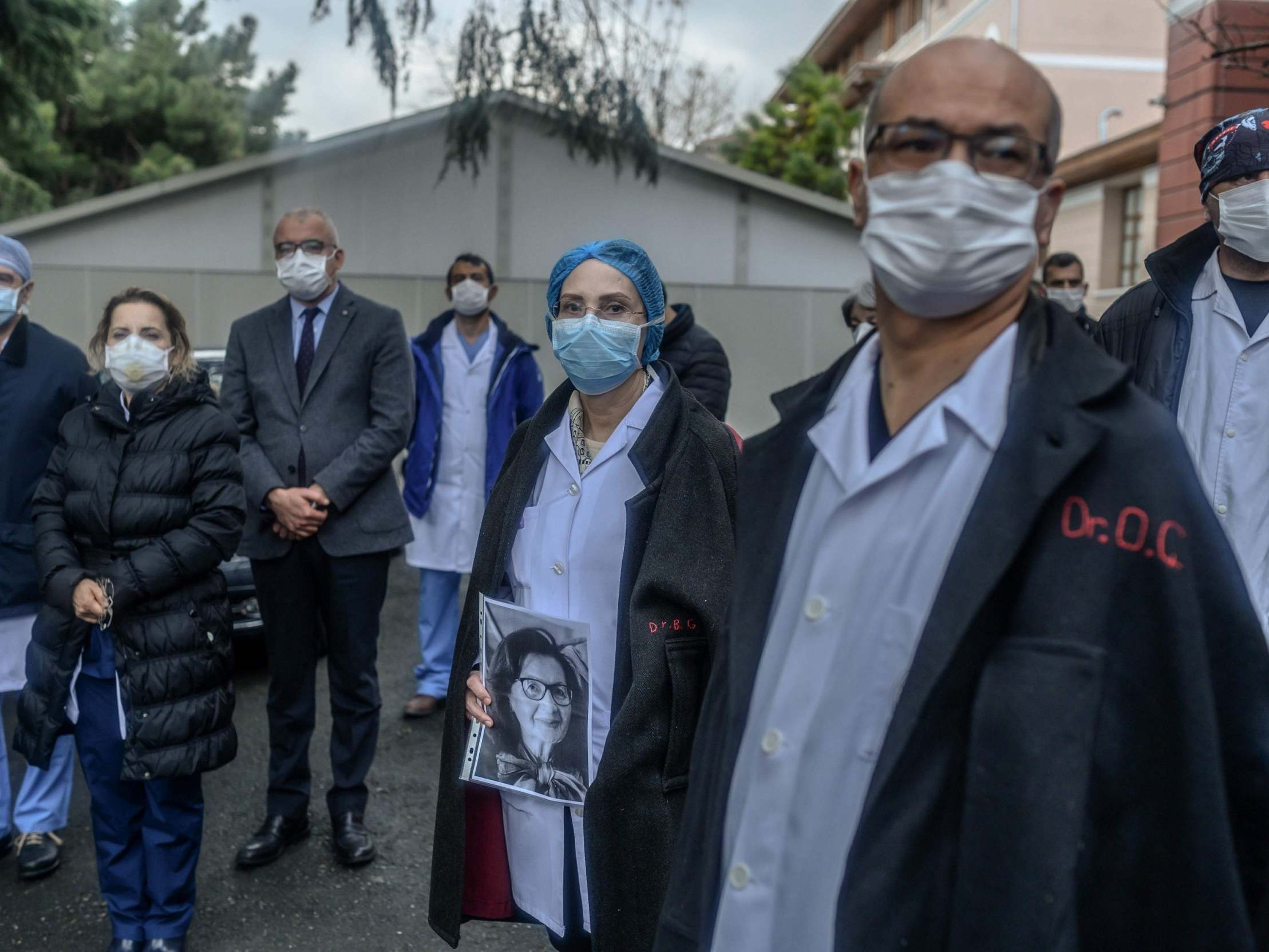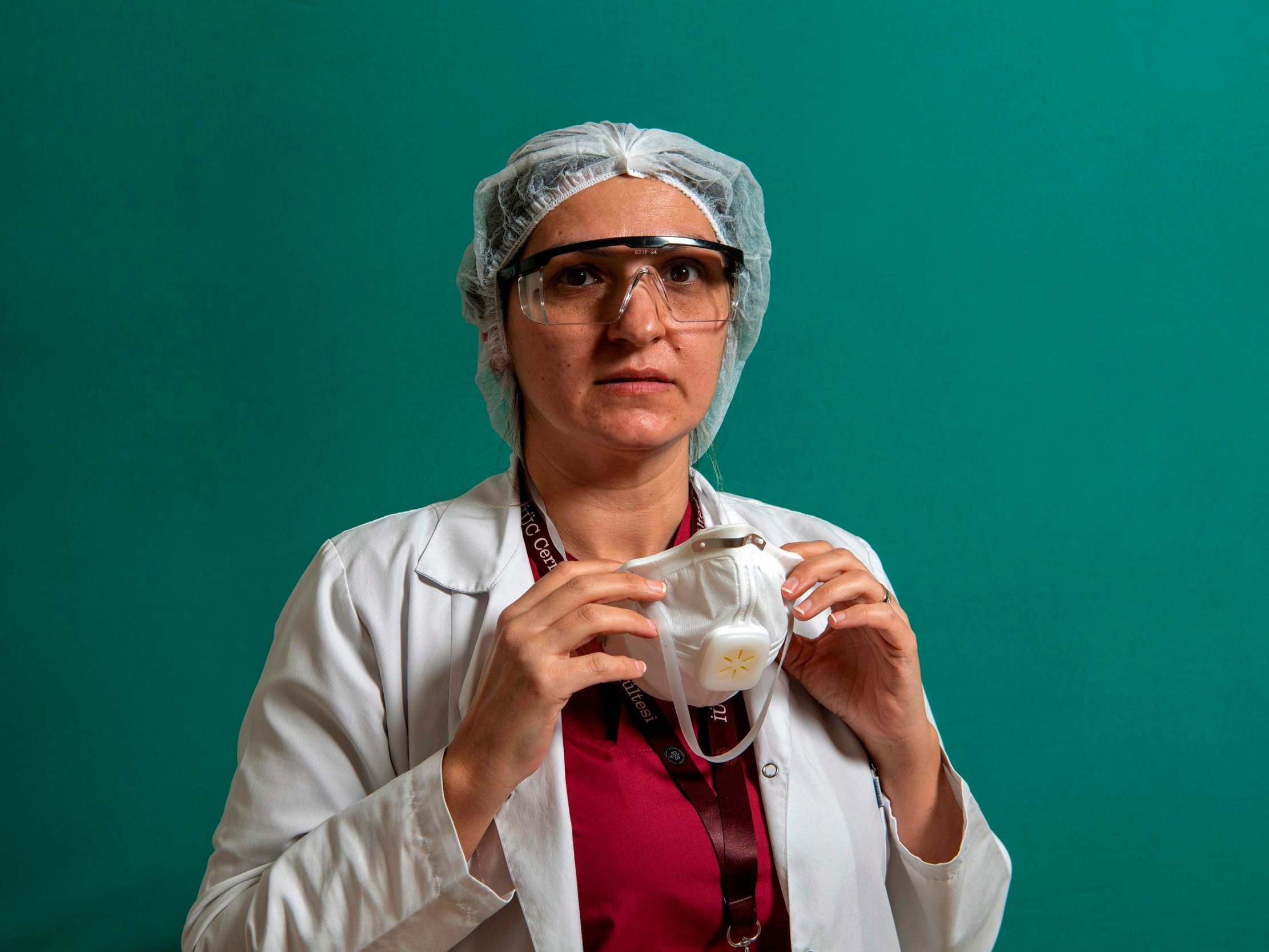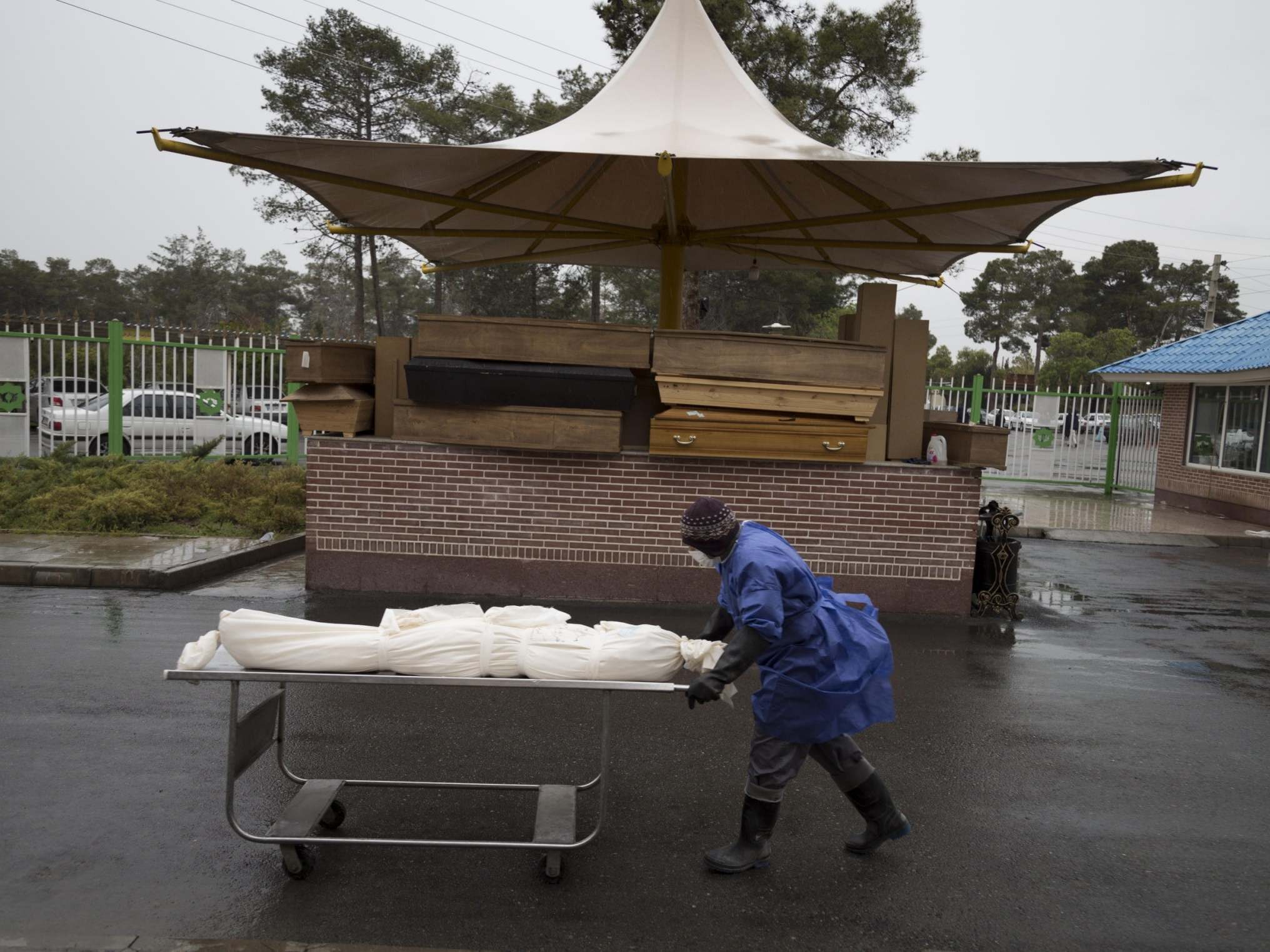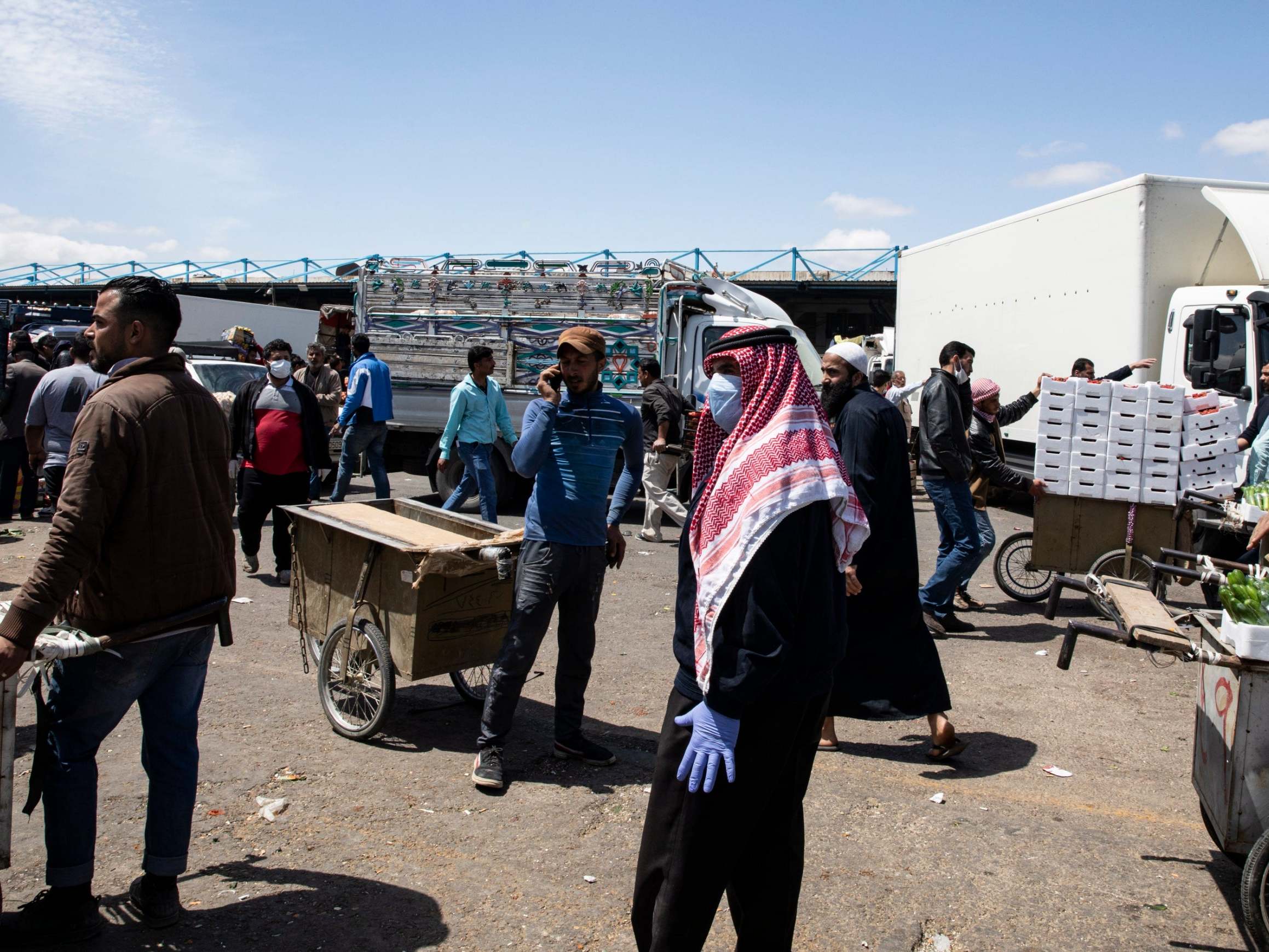‘Like being a soldier in a war’: Doctors describe the horror of their fight against an invisible enemy
With cases rising and a shortage of medical staff, beds and equipment, Borzou Daragahi meets medics across the Middle East being thrust into the battle against Covid-19


Coronavirus is taking its toll on medical systems across the Middle East, posing a fresh threat to an already unstable region many consider ill-equipped to address the pandemic. In Turkey, Covid-19 is overwhelming hospitals, especially in Istanbul and other big cities, where it has already felled major medical professionals treating the infected.
Egypt has begun instructing doctors about the virus, organising emergency webinars for those dealing with the crisis. But several hospitals have been inundated with the illness, including one cancer hospital which was shut down after 17 medical staff tested positive for coronavirus. The nation’s ambulance association says it’s rushing between 150 to 170 suspected Covid-19 cases to hospital every day. “It’s like being a soldier in a war,” says Abdallah Hussein, a doctor in the southern Egyptian city of Aswan. “But we all are very happy to be here.”
In Jordan, Lebanon and other countries, the illness has remained mostly manageable as governments enforce draconian lockdowns and prepare for the worst. But doctors across the region say they are being overwhelmed with cases of respiratory illness that are beginning to tax their abilities and resources.

“The stress is intense,” says Cemile, a 26-year-old doctor in Istanbul. “There are a lot of patients. One of the biggest problems is that nobody knows what to do. There are guidelines but they keep changing. The thing you did yesterday might be wrong today. They said you keep the patient. Now we send patients home because there is nothing we can do.”
They bring us patients, and there is nothing we can do. We don’t have space. We have to tell them to go home
For both experienced doctors and new residents on their first rotations, the Covid-19 outbreak has been a learning experience like no other, a challenge to doctors’ mental and physical health. Some just out of medical school or still in their residencies are forced to repeatedly make life-or-death decisions doctors ordinarily encounter perhaps only once or twice in their careers.
They are working shifts that stretch up to 24 hours, sneaking quick naps in break rooms. Many complain of lacking access to protective gear, sometimes asking friends and family outside the hospital or even from abroad to secure them coveted N95 masks and hospital gowns. “Yesterday they gave me one N95 mask,” says one doctor in Istanbul. “Today, we’ll see.”

Some seasoned doctors have succumbed to the illness themselves. Earlier this month in Turkey, one of the country’s leading doctors died of Covid-19 after treating infected patients. Cemil Tascioglu, a professor of general medicine, was 67.
“Unfortunately, we have also lost some of our colleagues in hospitals and clinics,” says Sara Ehteshami, 39, an emergency doctor in Iran’s Mazandaran province, one of the worst hit regions of the country. “We’ve lost people who were really experienced, and their loss was very painful for us. It will take years to train people up again.”
Doctors across the region say they’ve been trained to deal with death. They live in a region often stricken with war. But whether in Iran, Lebanon or Turkey, few have ever had to give up on patients – like medics prioritising the wounded in a combat zone – while at the same time remaining on guard against getting the illness themselves.
“Getting sick is part of the job,” says Ali Shami, a 30-year-old resident at the American University Hospital in Beirut. “I hate getting sick, because it means I have to go to work sick.”

When Cemile joined a major hospital in a lower-middle-class neighbourhood in Istanbul a few weeks ago, she thought she’d enjoy a slow learning curve on her way to becoming a great doctor. She had been hired to work in the emergency department, and imagined tending to carpenters falling from ladders, patients suffering heart attacks, perhaps an occasional car crash or burn victim. But instead the recent medical school graduate stepped onto the front lines of a war against a once-in-a-century pandemic.
“All the floors were full yesterday, and they are all full again today,” she says, noting that colleagues in other cities, such as Izmir, say their hospitals are also flooded.
In hospitals, the chaos is spiralling. Doctors in Turkey, which after Iran has become the Middle East country with the most coronavirus cases, say they worry that one infected patient could spread the illness to others in the absence of isolated Covid-19 facilities. “They bring us patients, and there is nothing we can do,” Cemile says. “We don’t have space. We have to tell them to go home.”
One minute a patient is calmly describing their symptoms. Half an hour later, they are fighting to breathe as doctors struggle to intubate them
Without enough testing kits, doctors are often using CT scans to confirm the presence of viral pneumonia, which is a strong indicator of Covid-19.
In Iran, the illness continues to ravage the country, though official statistics suggest that it’s no longer accelerating. Ehteshami says she and a group of friends set up a charity to help procure medical supplies for colleagues at reasonable prices to make up for shortfalls in masks and safety equipment at hospitals overwhelmed by coronavirus.
Even when they have enough personal protective gear, medical staff are hot and uncomfortable. Putting on and taking off masks and gowns takes time, effort and caution. Simple bathroom breaks become potentially dangerous when wearing plastic coveralls potentially teeming with the virus. “Me and my colleagues try not to drink a lot so we don’t have to go to the bathroom,” says Ehteshami.
The illness has confounded practitioners. One minute a patient is calmly describing their symptoms. Half an hour later, they are fighting to breathe as doctors struggle to intubate them. Hussein, the doctor in the hot and sunny southern Egyptian city of Aswan, warns there’s no indication that the coming summer will halt the virus. “There’s no proof that warm weather can decrease the spread of infection,” he says.
Adding to the woes are attempts by patients to treat themselves with fake cures promoted on social media, including ethanol alcohol promoted by some in Iran. “We have had so many problems at the emergency rooms, both because of corona and because of alcohol poisoning,” Ehteshami says. “One night it was a battle between coronavirus and alcohol poisoning as to which takes our attention. I lost two patients to alcohol poisoning. One was a 23-year-old. It was one of those nights I cried, for the patient and for myself.”

Even getting to work, often early in the morning on streets devoid of people in cities under quarantine, can be harrowing. Ali Omranirad, an anaesthesiologist in Iran, describes the feeling of terror and isolation he feels as he makes his way to the hospital alone past checkpoints before dawn. “It’s like walking across a battlefront,” he says.
Faced with the pandemic, some senior doctors have sought to retire or quit, only to be barred from leaving their posts by health officials
Although his speciality is anaesthetics, Omranirad is also serving as a frontline emergency doctor, and he’s still called upon to take on the delicate task of intubating the most critical patients when they can no longer breathe on their own. He described one particularly busy day, when he recognised one of the patients, the grandfather of a former hospital employee. He had tightness of the chest and was coughing badly.
“You could read in his eyes that he was about to give up,” Omranirad recalls. “I gave him oxygen and put him in a bed.”
The day continued to worsen. Patients flooded the hospital, and Omranirad was told by staff that there were no more beds and not to accept any more patients until some others “expire”.
Another doctor told him the grandfather had taken a turn for the worse. His blood oxygen levels were plummeting. Flooded with patients, the anaesthesiologist made the tough decision to let him go. “We don’t have enough ventilators, so we have to decide who to intubate,” he says. “He was conscious until the very last moment.”

Knowing the fragility of their medical systems, some countries have implemented draconian lockdowns to give doctors a chance to catch up. Jordan imposed a nationwide 24-hour curfew ending the morning of 4 April, barring all but authorised businesses from reopening afterward. Turkey has gradually tightened restrictions on intercity travel and announced a rule on Friday demanding everyone at markets wear masks.
Syria, which has been accused of seriously underreporting its number of cases, may be particularly vulnerable to a major outbreak after nine years of civil conflict.
“Beyond beds and ventilators, Syria today doesn’t have enough health professionals to tackle a large-scale epidemic,” Samer Jabbour, a professor of public health at the American University of Beirut, said in an interview with the news website The Syrian Observer. “In some reports, half of such professionals have left [the country] or have been killed or forcibly disappeared.”
Like in Asia, Europe and North America, Covid-19 appears to strike first at urban centres. On 1 April, Turkey disclosed a geographic breakdown of the pandemic, showing that 60 per cent of the country’s confirmed Covid-19 cases and at least 40 per cent of deaths were in Istanbul, a megalopolis of 16 million people. But the health ministry also disclosed that the virus had spread to all 81 of the country’s provinces. And not all the patients flooding hospitals are old or sick, say doctors.

Responses to the crisis have been uneven, with some medical facilities better equipped than others, depending on the competence of managers.
“The protocols we’re using for the virus are not unlike previous cases,” says Shami, the doctor in Beirut. “During Sars, Mers and even Ebola we got training,” he says, referring to previous epidemics that struck the world and threatened the Middle East.
Doctors in the Middle East are often the most elite students and continue to retain a social status in the region that has been eclipsed by bankers and entrepreneurs in the west. Many say they entered medicine out of altruistic motives, as well as because of decent salaries and the respect of society.
“No matter what gender you are and where you are located, if you’re sick I will be able to help you no matter what,” says Cemile when explaining her decision to become a doctor.
But few anticipated being thrust into fighting an unprecedented battle against a worldwide disease. Faced with the pandemic, some senior doctors have sought to retire or quit, only to be barred from leaving their posts by health officials. But many more are embracing the challenge.
Hussein says he and others are required to work 12-hour shifts for two-week stretches before rotating out. But many doctors and medical staff refuse to take breaks. “They choose to fight,” he says. “Some are working non-stop for more than a month.”
Few consider themselves heroes, but they light up with pride when described as such. Shami notes that he’s been working as an emergency room doctor for six years.
“It’s my job. It’s what I signed up to do,” he says. “I work on the front lines. Now it feels more like my duty than ever before.”
Join our commenting forum
Join thought-provoking conversations, follow other Independent readers and see their replies
Comments